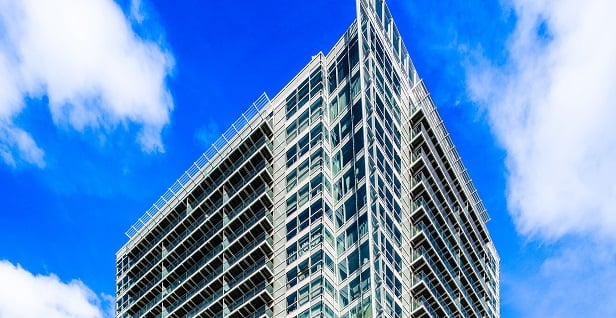The improvement in demand could not come at a better time. Sirius was hit late last year by two large tenant move-outs which, it warned recently, could cut profits below expectations in the financial year just ended in March. But founder and CEO Kevin Oppenheim is optimistic that the surge in demand across the portfolio – 38 separate German business parks of 11.8 million square feet of mixed-used flexible-workspace real estate - means the worst is over.
Sirius has invested $66.5 million of capital expenditure to modernize and upgrade, and the strategy is paying off, Oppenheim says. "What we've essentially achieved is Phase 1, which included building up the existing portfolio and the management team, and creating the regional platform in Germany, really spending the capital to procure the transformation from tired old buildings into modern new vibrant multi-let branded business parks. We've created a lot of product, put our brand in the market, and Phase Two, which we've now entered, is what I call a drive towards occupancy and efficiency."
He says Phase Two is taking the portfolio from the current level of occupancy which is circa 71%, up to 80%-plus. Sirius has set this benchmark to allow it to move forward in a third phase toward realizing value for shareholders, and maximizing profits. "We've been very lucky on timing because what we're seeing now is a level of inquiries and demand for our product way above anything we've had previously," Oppenheim says.
Sirius is registered in Guernsey. Its main investors are led by the South Africa-based alternatives investment manager Principle Capital, whose head, Brian Myerson, was Oppenheim's main backer setting up the firm in the middle of the last decade. Principle now holds an equity stake of just under 10%. Other large shareholders are mainly opportunity and hedge funds: Clearance Capital, Laxey Partners, F & C Asset Management, Hound Partners, Staracre, Weiss Capital, Alpine Woods Capital and Kleinwort Benson.
Subsidiary Sirius Facilities CEO Andrew Coombs says the German marketplace is shifting: "The shape of the market is fundamentally different from 18 months or two years ago. What we're seeing is that decision-making in larger corporate clients is taking longer and has become far more tactical. This means our proposition has become particularly strong because people that maybe were looking at a 10 to 15-year workspace decision before are now tending to look at 12-to-18 month stop-gaps. At the opposite end, we are seeing SME demand growing at an exponential rate from people that left large corporations or are subsidized by government funding in Germany to help with employment," Coombs says.
Allan Saundersonis a managing editor of Property Investor Europe and a contributor to GlobeSt.com.Want to continue reading?
Become a Free ALM Digital Reader.
Once you are an ALM Digital Member, you’ll receive:
- Breaking commercial real estate news and analysis, on-site and via our newsletters and custom alerts
- Educational webcasts, white papers, and ebooks from industry thought leaders
- Critical coverage of the property casualty insurance and financial advisory markets on our other ALM sites, PropertyCasualty360 and ThinkAdvisor
Already have an account? Sign In Now
*May exclude premium content© 2024 ALM Global, LLC, All Rights Reserved. Request academic re-use from www.copyright.com. All other uses, submit a request to [email protected]. For more information visit Asset & Logo Licensing.








